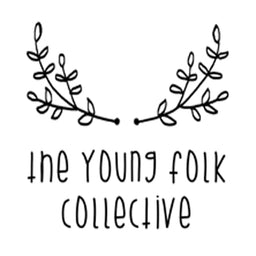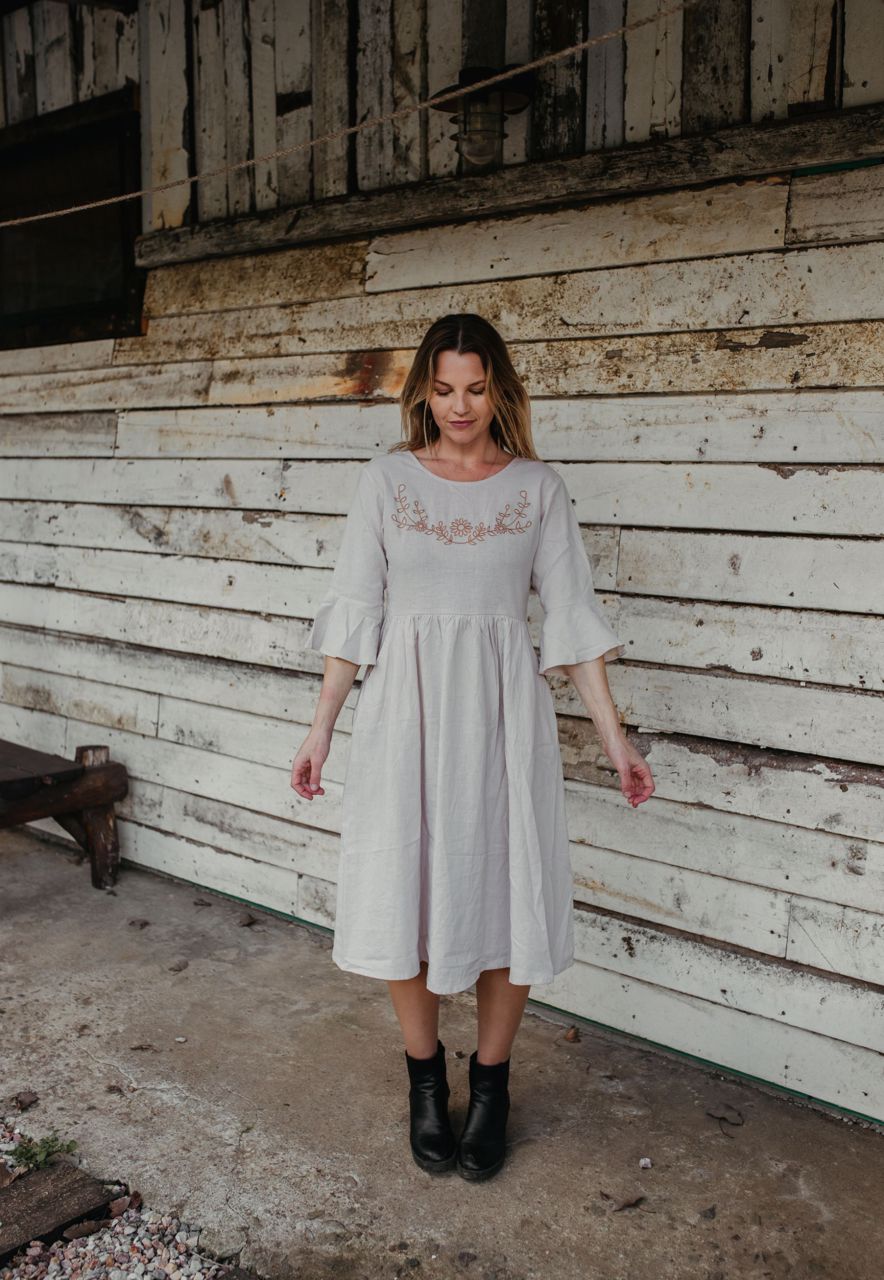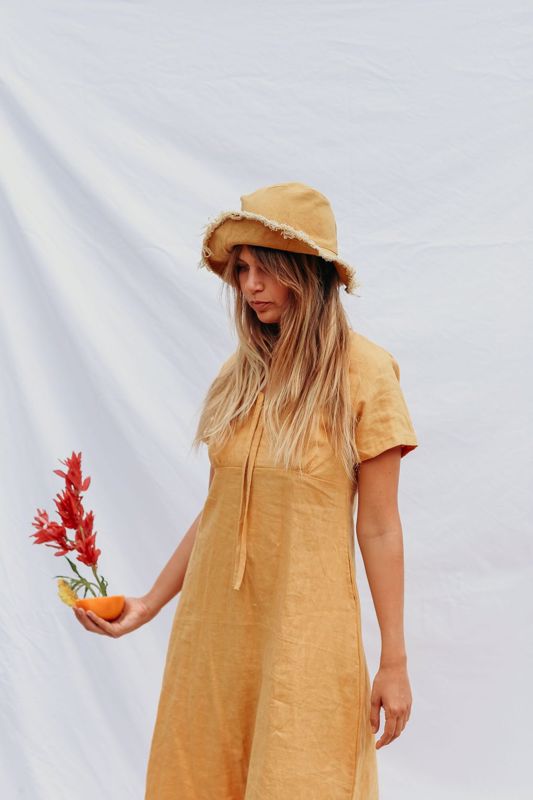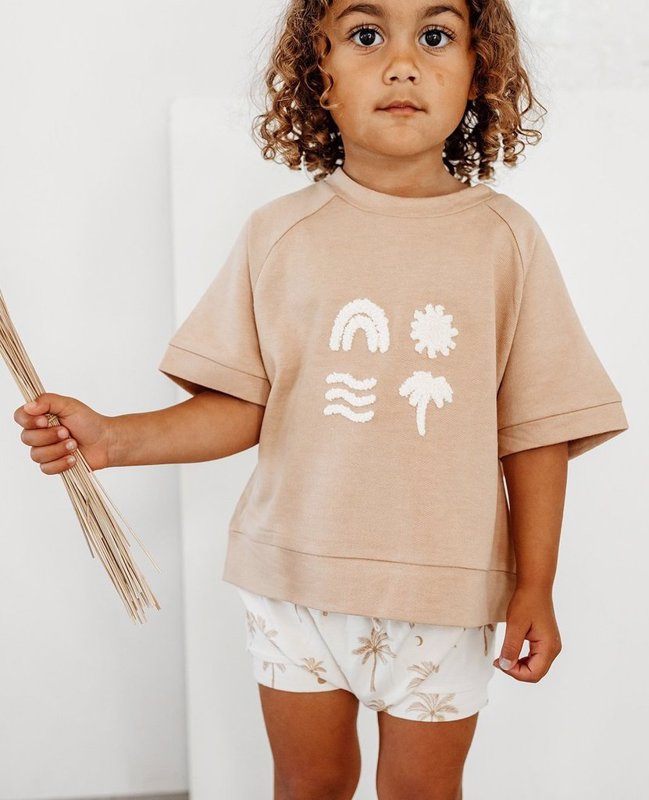The term sustainable fashion is thrown around a lot these days, but what does it actually mean?
In this article, we will help guide you through what makes fashion sustainable and where to find clothing that follows the principles needed to achieve this label.
This blog is 'The Complete Sustainable Fashion Guide'.
This guide will allow you to become more informed on how to purchase clothing and apparel to better impact people and the planet, and can save you some money in the process!
Finally, we will provide you with the tools to spot brands who are implementing slow and sustainable fashion.
As a bonus, we have compiled a list for you highlighting Australian and New Zealand brands that are doing it right.
Let's get right into it.
(1) What is sustainable fashion?
Sustainable fashion is a philosophy used in the decision making around clothing design, from its concept to the final product delivered to your door.
Simply put, the goal here is for zero negative impact on the environment and a positive impact on the makers of the garments. Striving for this should be at the forefront of every business, at every decision making level.
- Slow Fashion
- Sustainable + Ethical Fabrics
- Fair Trade
- Responsible Manufacturing
Below we will dig deeper into these categories.
Here we go.

(2) What is Slow Fashion?
Just as it sounds, brands that take the process slow.
It is the awareness and approach to all things fashion, which considers the processes and resources required to make clothing, mainly focusing on sustainability.
You can be boiled down to one question -"are my actions doing harm, or good to the world?". If the answer is "good", and you can explain "why", then you are on the right track!
The approach to slow fashion involves everyone in the process. From the initial concept of a piece of clothing, ultimately to you - the purchaser.

(3) What are Sustainable + Ethical Fabrics?
Sustainable + ethical fabrics are derived from eco-friendly resources, such as sustainably grown fibre crops or recycled materials.
Generally, natural fabrics derived from plants such as linen, organic cotton and lyocell/Tencel, made from sustainable wood pulp, are more sustainable than human-made materials such as polyester - which is synthetic and takes hundreds of years to biodegrade.
Linen is one of the most biodegradable and stylish fabrics on the market, derived from the flax plant. It needs little energy or water to grow and thrive, dramatically reducing its impact on the planet. Grown free of chemical, is naturally biodegradable and recyclable, extremely strong, providing longevity. Linen is also rumoured to have magic healing qualities, such as reducing arthritis and dermatitis.
Cotton is one of the most commonly used fabrics, however growing cotton can be problematic with high agricultural needs.
Organic cotton is a more positive and sustainable alternative.
Hemp is another of the most environmentally friendly fabrics currently available on the market. It is strong and durable, fast-growing and resilient, with no toxic chemicals need.
Bamboo itself can be a highly sustainable crop, if grown under the right conditions. However, most bamboo fabrics on the market are a form of rayon where the manufacturing process is highly intensive and involves many harmful chemicals.
Lyocell can be a more sustainable alternative with much less impact, however it is important to find good lyocell products made from bamboo like Monocel®.

(4) What is Fair Trade?
Fair Trade, defined, is when producers in developing countries are paid a fair price for their work, by companies in developed countries. It is when the price we pay for products gives enough to producers for them to afford life's essentials - like food, education and healthcare.
Typically, fair-trade producers are also small cooperatives of workers using no child or forced labour, using organic or environmentally sustainable methods, and having high standards of animal welfare.
(5) What is Responsible Manufacturing?
Responsible clothing manufacturing is the creation of clothing to conserve energy, and prevent any harmful impacts on the environment. Examples of this would be using recycled water in any cleaning process and using solar power for their electricity needs.
A responsible manufacturer would be mindful of the waste they generate and minimise this as much as possible. Acceptable practices would be to eliminate any single-use plastic and replace them with a biodegradable product, such as composting bags for packaging.
(6) Why should you buy sustainable clothing?
The obvious answer here is knowing that you are making a conscious effort to lower your environmental impact on mother nature and helping highly skilled workers support their families.
But did you know that it could save you money!?
Sustainable fashion is most of the time offered by smaller companies with fewer overheads like advertising and expensive storefronts, so the mark-up on their clothing isn't as much.
When you buy sustainable clothing, you are getting a higher quality product which lasts longer in your wardrobe, which reduces the cost per wear.
It is a win-win all round!
(7) How can you help Sustainable Fashion?
The best way to support sustainable fashion is to inform yourself on the topic and support small businesses who exercise this philosophy. By proudly wearing their pieces, people will be interested in them. Lead by example.
Use the tools provided in this guide to hunt down slow fashion brands.
(8) What are the characteristics of a brand is implementing Slow Fashion?
- They are usually transparent of how and where their clothes are made and are happy to answer any more questions you may have.
- Often in smaller stores, local or online, rather than big chain stores.
- They have particular styles and only a few pieces per collection.
- Items are made from high quality, sustainable and organic fibres.
(9) Where can you buy sustainable clothing in Australia and New Zealand?
A good way to find businesses implementing slow fashion is by searching on Instagram using the below hashtags.
#sustainablefashionau
#sustainablefashionnz
#slowfashionau
#slowfashionnz
No Instagram? No worries, we've got you covered!
We've created a list of our favourite Australian and New Zealand brands that are paving the way in sustainable clothing.
Kowtow uses organic, fair trade cotton and non-toxic dyes to produce its clothes. It designs elegant, timeless womenswear, and also has a range of ceramics.
A pioneer of independent Australian design, Elk was founded in Melbourne in 2004. Elk creates bi-annual collections that are informed by a design ethos where simplicity and sustainability meet innovation.
We care about people and we care about our planet, we like to take all things fashion - slow. Creating garments for quality and longevity. We work to slower production schedules, fair wages, lower carbon footprints, and zero waste.
Our clothes are made to transcend seasons. Linen is hypoallergenic, lightweight and breathable in the warmer months and will retain the heat from your body and release the excess making you feel nice and cozy when it’s cooler. Linen is also recyclable and biodegradable, meaning you won’t be adding to the growing piles of textile waste all over the world.
A luxury lifestyle brand built from humble beginnings. The label was created with a vision to create functional, refined, quality pieces - all with a commitment to ethical, sustainable and quality pieces. St. Agni lives by a “less is more” philosophy and practise this across all aspects of their business in an effort to avoid excess of any kind.
Vege Threads is an Australian apparel brand that prides itself in its low-impact production of their products. They use 100% organic and eco-friendly materials such as hemp, 100% GOTS certified organic cotton, and natural plant-dyed textiles.
Founded as a means to help women out of sex trafficking in Cambodia, Outland Denim now supports and empowers individuals from varying backgrounds of vulnerability through employment. With a size offering ranging from four to 16, this B Corp employs a holistic approach to supporting its staff through opportunity, a living wage, and education.
From their earth fabrics, their people, eco-packaging and carbon neutral shipments, they thrive to support only those who believe in the similar processes.
Fabrik’s textile factory employs and trains men and women from the local area in Indonesia.
As well as sourcing the most eco-friendly fabrics available, they are dedicated to printing them using the most natural dyes and eco-friendly practises.
Garçonne is about embracing slow fashion. They encourage customers to make sustainable choices by buying timeless pieces that are made well and will last. Using natural fibres and fabrics to support that sustainable goal. Predominantly using linen, wools and silk and will also use cotton sparingly. Knitwear fibres include sustainably sourced and traceable Cashmere, Alpaca, Merino and Yak.
Hazel + Folk is an Australian based slow fashion label. Creating garments that can be worn year after year, pieced together in different ways, allowing you to create the maximum amount of looks, with minimal pieces- in turn, minimising excessive consumption and waste.
Each design in made in very limited numbers, so nothing is mass-produced.
Inspired by slow, quality made, functional and easy to wear pieces that are timeless and versatile, ensuring all the clothing is made from materials and dyes that are going to be as kind and gentle on your babies skin as it is on the environment.
Bam Loves Boo garments are Certified by OKEO-TEX 100 to verify that there are no traces of chemical or harmful toxins left in their babies wear.
All items are made from organic cotton jersey, coloured with high quality dyes and printed with the softest water-based inks.
These PJs are truly a local product from start to finish, having been designed, dyed, printed, and manufactured locally in Australia.
Everything they make is vegan friendly, 100% cotton and ordered in small batches. Nu natives also use deadstock fabrics that would otherwise go unused for some of their designs and all of their off cuts and leftovers are used for samples.
Over to you...
Do you love a sustainable brand that we have missed? Please share in the comments below.















